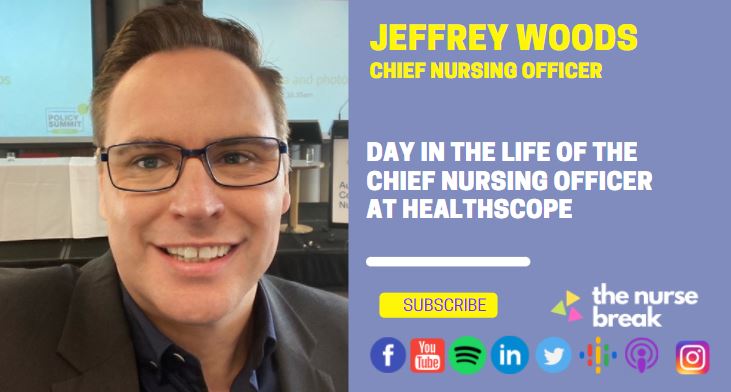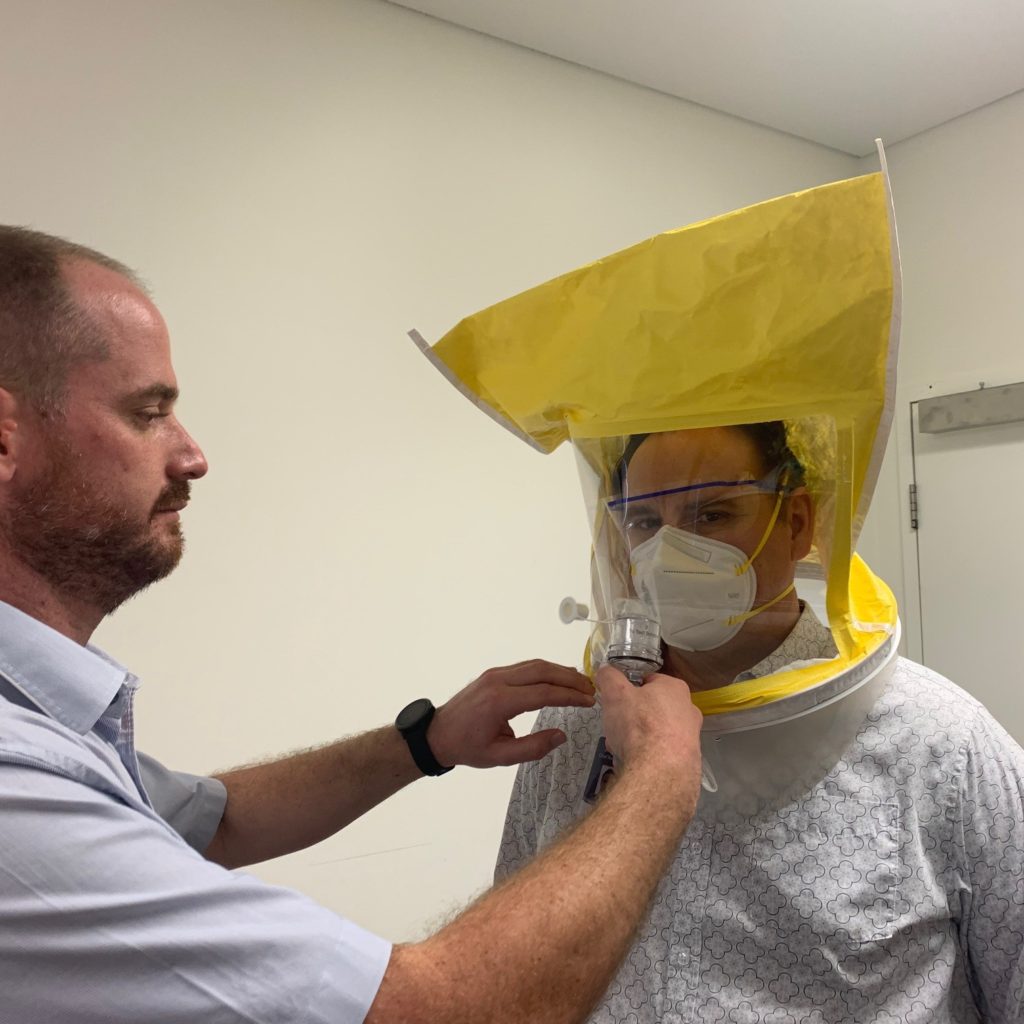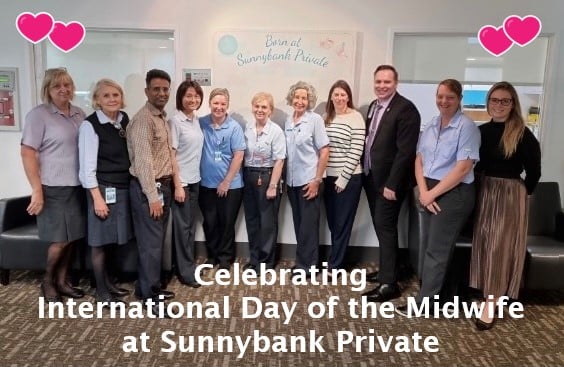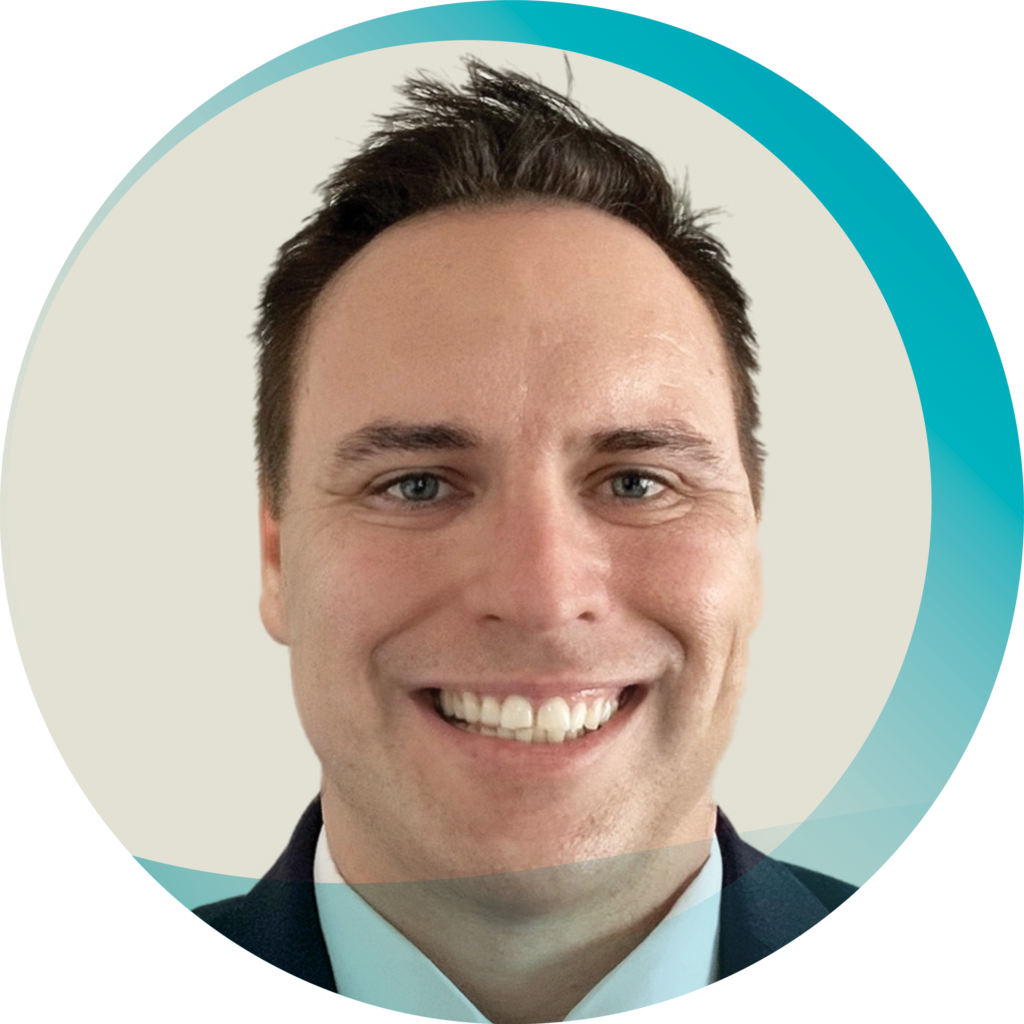Table of Contents
Meet Jeffrey Woods, inaugural Chief Nursing Officer for Healthscope. Healthscope is Australia’s only national private hospital operation and healthcare provider with a network of 42 hospitals that service every state and territory. They create jobs for over 19,000 people.
Jeffrey has been a nurse for 24 years and was born in Umtali, Zimbabwe and raised in Australia. His clinical speciality was ICU and he has a Masters of Nursing (Critical Care). During COVID19 and thanks to his nieces, Jeffrey became an Adult Fan of Lego (AFOL). Another fun fact…when he lived in Los Angeles he did stand-up comedy for about 2 years!
Fit Testing Chief Nursing Officer LEGO
What does your day look like as a Chief Nursing Officer?
Being Healthscope’s inaugural Chief Nursing Officer (CNO) has provided me with a ‘once in a life time’ opportunity to create and shape my role from the ground up. Unlike a Director of Nursing/Director of Clinical Services, who are operationally focused, as the CNO my role is strategic and is responsible for providing the vision and direction for nursing throughout our health system.
This means creating an environment where ‘front line’ nurses are involved in the decisions that impact their practice and enables nursing care to be delivered within the framework of evidence-based practice. As the CNO I am responsible for ensuring nursing has voice from floor to board. While this does mean the bulk of my day is spent in meetings, it also means I am able to ensure nursing has a seat at the table for anything that impacts the professional practice of nursing.
How does someone become a Chief Nursing Officer?
Ideally, Chief Nursing Officers need to have extensive experience in nursing management, be educationally prepared with a minimum of a master’s degree in nursing and have a proven track record of achieving goals in highly complex organisations.
Because the role is strategically orientated, CNOs need to be transformational leaders who possess the skills to clearly articulate a vision, be innovative, inspire others, and set high expectation for achievement. The professional practice of nursing is about lifelong learning; this becomes even more important when you move into nursing leadership.
This means anyone who wants to become a CNO or any other type of nursing leader, needs to develop themselves as a leader through mentorship and self-development. It is critical leaders understand their leadership style, for example I describe my leadership style as a combination of Transformational and Servant Leadership. Now I was going to explain them but instead I want to encourage you (yes, I am giving you ‘homework’) to look up what each of these mean and see if they resonate with you and the type of leader (formal or informal) you want to be.
How has COVID19 impacted you and your organisation/staff?
It is easy to talk about the financial impacts COVID has had, however, it is much harder to talk about the ‘wellbeing’ impact. This is particularly important when it comes to ‘mental health’ wellbeing. As nurses, we tend to be predisposed to ‘sacrificing’ our own needs for those of others. However, if we don’t look after our own wellbeing how can we look after someone else’s.
For me the biggest challenge of COVID has been around supporting the ‘wellbeing’ of our nurses and finding creative and innovative ways to celebrate them and also provide them with a safe space to debrief and share how they are feeling. For me personally, it has meant I now live a ‘Zoom-tastic’ life of non-stop Zoom meetings and due to working from home, it feels like I never stop working.
It has also taken the worry and anxiety about ‘ensuring the safety of our staff, patients and my family to a whole new level! COVID has also limited the ability for me to conduct in-person visits our hospitals, in particular the ability to speak face to face with nurses and patients (the favourite part of my job).
Like all human beings I rely heavily on reading body language to see beyond the words. Unfortunately, for all the benefits video calls bring they can’t replace face to face, human to human communication.
What are some common misconceptions about nursing executives and Chief Nursing Officer‘s in your opinion?
I think the first myth would be ‘That we are all about the finance!’; it doesn’t matter whether we are in an executive role or a direct care role we all have a responsibility to be good financial stewards for our organisation. Whether we are public, private or not for profit we need to ensure we are managing our financial resources wisely to ensure our future ability to provide the needed care to our communities.
The second myth would be that nursing executives are out of touch, “they don’t know what it’s like, they haven’t worked on the floor for years”. To be honest, I was guilty of this one. However, I have since learned that I didn’t really want my nursing executive ‘working the floor’, OMG could you imagine what a nightmare that would be? What I actually wanted, was for my nursing executive to ‘understand’ what it was like working on the floor.
By this I mean they listened to me when I talked about workload, staffing or anything else. They asked questions, sought my recommendation and encouraged me to look for solutions. By doing this they pushed me to see past the problem and to look for innovative and creative solutions. Which means they gave me a say in my professional practice and encouraged me to be part of the solution to the problem. I have been very fortunate in my career to work for nurse leaders who did exactly this and they are the type of leaders I strive to be today.
How can a nurse better prepare themselves to work as a Nurse Manager or Chief Nursing Officer ?
One of my favourite leadership quotes is from Scott Williams “Managers change things; leaders change the world”. So if you have to choose between being a manager or being a leader, always chose leader.
What I mean by this is don’t let your title define you, because if you do then it will limit you. Leaders aren’t reliant on ‘positional’ power (title), they use something far more powerful and that in ‘influential’ power.
By focusing on influential power you inspire happier and more productive teams. It allows you to create a workplace that allows your team to feel relaxed, confident in their abilities and to thrive. Here is a link to one of my favourite leadership videos by Scott: https://youtu.be/8ubRzzirRKs
What do you wish you knew before you become a Chief Nursing Officer?
That meetings would consume my day!
- Don’t let resistance from others distract you from your vision.
- People would rather be uncomfortable in a familiar situation, then uncomfortable in unfamiliar situations. This means people may ‘hate’ where they are, but they see ‘change’ as worse.
- It is a journey, not a destination. So go easy on yourself and your team because change is hard, even if it is for the better future.
- Take care of yourself so that you can take care of your team.
- Have fun. Always find ways to have a little fun at work.
Often the nursing profession is not ‘at the decision-making table’ or is the ‘silent majority. What is your experience?
This is a great question. In all honesty, I do see this in my organisation, however, we are working very hard to change this, which is one of the reasons my role was created. I spent 11 years working in Los Angeles at Cedars-Sinai Medical Centre, which is one of only nine hospitals in the world to receive its fifth consecutive Magnet designation for excellence in nursing.
During my time there I got to experience what it was like to be part of a high performing nursing organisation. As a young Aussie nurse it was life-changing and for the first time in my career I got to see the true power and positive impact of nursing on an organisation, patients, staff and the community. Returning to nursing in Australia was a culture shock because it felt like Australian nursing was frozen in time.
At the risk of being controversial, while it is always easy to identify the external factors that limit us from having a seat at the decision-making table. I am a firm believer that we need to look inward both as individual nurses and collectively as a profession to identify what we need to change within ourselves.
Because at the end of the day the only thing we have full control over is ourselves and collectively our profession. I feel sometimes we are our own worst enemy because we down play the importance of our profession and the value we bring i.e. ‘I’m just a nurse’. We are not just nurses we are highly qualified professionals who make a unique contribution to health care. When we down play our role we reduce our profession to a series of tasks.
As nurses, we don’t just take vital signs, give medications, change wound dressings. We are no more or less important than doctors. We are the glue that holds the health care journey together.
The American Nurses Association sums up what nursing does perfectly as
“nursing has a unifying ethos: In assessing a patient, nurses do not just consider test results. Through critical thinking, nurses use their judgement to integrate objective data with the subjective experience of a patient’s biological, physical and behaviour needs. This ensures that every patient receives the best possible care regardless of who they are, or where they may be”.
American Nurses Association
Our unique contribution is greater than the sum of the tasks we do and it is imperative that as professional nurses we are active members of professional nursing organisations, engage in self-directed lifelong learning and engage with the broader nursing community through platforms like The Nurse Break.
This way we are continually growing as individual professionals and also enriching the profession as a whole. Before anyone will value us and give us a seat at the table, we must value ourselves as a profession (we must see beyond the tasks we do) and believe that we not only deserve a seat at the table but that we have earned the right and privilege to sit at the table.
What are some key factors that determine GOOD leadership? Have you experienced bad leadership in your career?
For me, accountability, empathy, humility, vision and positivity are critical factors that determine good leadership. Good leaders care about others and focus on bringing out the best in people and allow them to shine. They take pride in the accomplishment of their team and never throw their team under the bus but rather help them learn and grow from mistakes.
Unfortunately, I have experienced bad leadership. I worked for a leader who did not value their staff. This made for a very unhealthy work environment that stifled innovation, trust and safety which ultimately put quality of care at risk. In a nut shell this leader made me feel like a piece of equipment with a pulse rather than a professional nurse. Since I won’t work anywhere I am not valued I left.
Thankfully my next position was at Cedars-Sinai working with a nurse leader who was the polar opposite, one who took pride in seeing her team shine and thrive.
Why is a healthy organisation culture so important and what advice do you have for Nurse Unit Managers on building and fostering a healthy culture?
It is impossible to make everyone happy, but a healthy work environment is one of the characteristics of an organisation that thrives. Gone are the days of the industrial age, where there where ‘deciders’ (managers) and ‘doers’ (employees) and the doers just did what the deciders said. Today nurses what to work for organisations that maximise their personal and professional lives and give them say in the decisions that impact their practice.
Organisational culture is heavily influenced by its leaders. As leaders, we are the role models for the behaviours we see in our team. In order to create a healthy culture, as leaders, we need to focus on mentoring and coaching rather than micromanaging and gatekeeping. Leaders must advocate for their people and empower them to do great work rather than trying to do it all themselves. This sounds all very ‘theoretical’ and ‘difficult’, so I recommend starting small.
Focus on appreciating your staff through frequent and meaningful recognition and frequent one to one conversations to ‘check in’ and build up from there. Remember you are the role model for the behaviours you see in your team, so if you are walking around with a ‘resting face of thunder’ or are ‘a bitter Betty or Bob” then most likely so is your team.
If you could change one thing only (anything at all), in nursing/health, what would it be and why?
That as a profession our government places us on an equal footing with our doctor counterparts with regards to billing Medicare and other funding sources for the work and services we provide.
What key message would you like nurses who read this to take away from this interview with you?
As nurses we have a rich history of changing health care and the world. We have a profound and important impact on the health care system and our communities. This means our value is greater than that of a cost to be controlled or contained. It is up to us, both individually and collectively, to advocate for the professional practice of nursing and our unique contributions to health care.
Did you enjoy this article about a Chief Nursing Officer? Well head over to our other leadership articles and/or put us in contact with a great nursing leader you know so we can interview them! Email hello@thenursebreak.org










You must be logged in to post a comment.